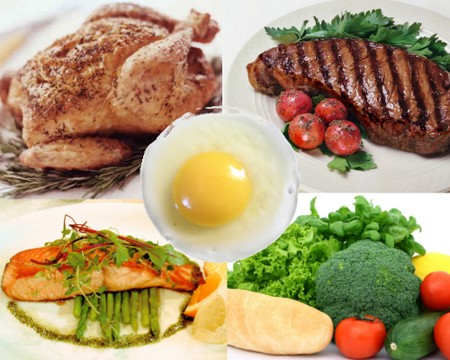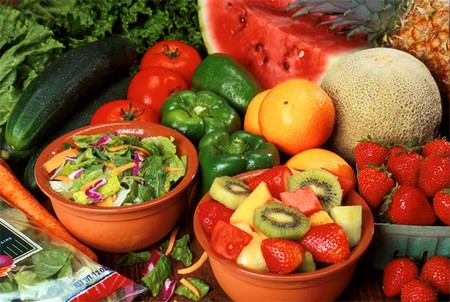Finding the perfect nutrition for your little one can often be a challenge. With so many vitamins and minerals to keep track of, if you don’t have a plan in place things can get out of hand. When it comes to protein for your baby, there are plenty of things you should know before you start them on a protein rich diet.
In the following paragraphs you’ll find a bit of information of how protein helps your little one grow up to be big and strong as well as some food ideas you can try to help introduce more protein into their diet.
What is Protein?
The first topic we should tackle is what protein is exactly. Many people thing of body builders when they think of protein. While it does aid in helping people bulk up, it also serves a multitude of other functions that often go overlooked.

Firstly, protein is a set of amino acids that have been linked together. Out of the 22 amino acids the body uses every day to function properly, it can only naturally produce 13 of them. The rest need to be taken in through food. Protein in the diet helps introduce those other amino acids into diet so that your baby can grow up big and strong.
How Much Protein is Enough?
It’s often unsaid, but getting too little protein in the diet is an extremely uncommon problem. In the western world, most people receive enough, if not too much protein in their diets on a daily basis. In your baby’s first few months in the world, his or her main source of protein will come from breast milk or milk formula. Both provide more than enough protein for your baby to build strong bones and a healthy diet.
From breast milk, it’s a good idea to start introducing solid foods that will provide protein as well. Vegetables and things like cereal will provide the protein needed to continue living healthy.
The only time that it’s a good idea to introduce protein rich foods into your baby’s diet is if you’ve been instructed to do so by a doctor. Since protein cannot be stored in the body, every time it is consumed it must be broken down into by products. If the protein needs have already been filled, the excess protein byproducts are flushed out in your baby’s urine.
Since your baby’s kidneys will be the ones handling any excess protein you throw their way, if your child is still growing, the extra strain on the kidneys is never good. Pushing the kidneys too hard can result in kidney failure, which would be terrible!
My Doctor Said My Child Needs More Protein
If you’ve talked to your child’s pediatrician and they’d made a recommendation that you should start introducing more protein into their diet, there are a few things you can include in their diet to make it better rounded and higher in protein content.
Dairy Based Formula:
If you’re not breastfeeding your child, chances are they aren’t getting enough protein. Buying a dairy based formula such as this one from Baby’s Only, you can give your child the extra protein they need without flooding their body with protein rich foods like beef or chicken which could put unnecessary pressure on their kidneys or body. All Baby’s Only products are organic and are produced free of pesticides, making them completely safe for your baby to consume. In addition to protein, they also come with quite a few other essential vitamins and minerals to help your baby grow to their fullest potential.
Whey Protein:
This next item is not for baby’s that have already popped out into the world, but instead are still in the womb. It’s not uncommon for mothers to be short on their protein intake when they’re nursing, which is why it’s sometimes a good idea to take a protein supplement so that the child they’re nursing receives enough protein as well. One of the most highly regarded whey protein brands is Optimum Nutrition. They’ve been in the business for years and have built a reputation for themselves as being the best whey protein powder on the market. Their chocolate whey protein is easy to digest and doesn’t taste gritty or bitter like other supplements. As directed by a doctor, it’s a good idea to have one or two scoops of protein daily to ensure that not only you, but also your child, receives all the protein they need while you’re nursing.

Why Would Babies Have a Protein Deficiency?
Protein deficiencies come from many different places, but most commonly arise because of an illness or infection. When the body gets sick, it uses all of its energy to fight the disease and get it out of the body. To compensate for all of the energy expended and to repair the tissues and cells that have been damaged because of the infection, extra calories and protein need to be taken.
Since children are the most susceptible to illnesses, it’s easy to see why in some cases children aren’t getting everything they need to fight off future infections. If your baby is ill, talk to your doctor about what could be the cause of the disease and how you should change your child’s diet to compensate for the lack of nutrients currently in their system. Adding protein and calories can help a baby recover faster and fend off diseases more easily in the future.